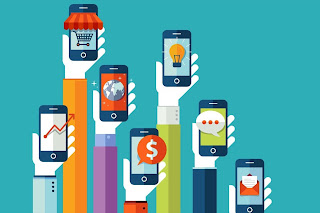Search This Blog
"TechBytes" is the place to go for everything tech related! Welcome! Explore the world of innovative devices, ground-breaking software, and the most recent developments in the technology sector. Passionate tech enthusiasts who are driven by innovation curate our blog.
Featured
- Get link
- X
- Other Apps
What makes Android different from previous operating systems?
Android is an operating system that was made mostly for portable electronics like tablets and smartphones. Its open-source status, customizable features, and connection with Google services set it apart from other operating systems.
1) Open Source: Based on the Linux kernel, Android is open-source software, which allows anybody to download and use its source code. Because of its openness, a wide variety of Android-powered devices may be customized and modified to a great extent by developers and device makers.
2) Customization: High degrees of functionality and UI customization are available with Android. Custom launchers, themes, widgets, and third-party apps from the Google Play Store allow users to customize their smartphones. Furthermore, device makers frequently add distinctive functionality and design aspects to Android by customizing it with their own user interfaces (UIs).
3) Google Integration: Google services like Google Assistant, Google Maps, Google Drive, and Gmail are all intimately integrated with Android. By facilitating easy access to Google's network of goods and services, this connection improves productivity and user experience.
4) Fragmentation: The vast range of devices running various operating system versions is known as fragmentation, and it is one of the problems with Android. Software upgrades across devices and user experiences may become inconsistent as a result.
5) Hardware Diversity: There is a broad diversity of form factors and hardware characteristics among the devices that run Android, which are produced by different firms. Customers may select gadgets that best fit their needs and budgets because to this variety.
On the other hand, distinct experiences and ecosystems are provided by other operating systems, such as Windows Phone (previously Microsoft's mobile operating system) and iOS (Apple's operating system for iPhones and iPads). iOS is renowned for its closed environment, close hardware integration, simplicity and security focus, and emphasis on the former. Despite not being actively developed any more, Windows Phone had an innovative tile-based interface and was integrated with Microsoft services. Every operating system has advantages and may meet the demands and preferences of various users.
- Get link
- X
- Other Apps
Popular Posts
Which Android applications are the greatest for smartphones and are practical for everyday use?
- Get link
- X
- Other Apps
Main differences between Windows 10 And Windows 11
- Get link
- X
- Other Apps



Comments
Post a Comment